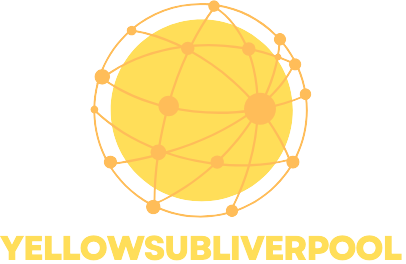Table of Contents
ToggleIn today’s fast-paced world, effective leadership is more crucial than ever. Whether in the boardroom or on the front lines, strong leaders inspire teams and drive success. They possess a unique blend of skills that not only elevate their own performance but also empower those around them.
Understanding the essential leadership skills can transform individuals into influential figures who navigate challenges with confidence and clarity. From communication and emotional intelligence to decision-making and adaptability, these skills are the foundation of impactful leadership. As organizations evolve, honing these abilities becomes vital for anyone looking to make a difference in their field.
Understanding Leadership Skills
Leadership skills encompass a set of attributes and competencies essential for effective guidance and influence. These skills enable individuals to inspire, motivate, and drive success within teams and organizations.
Definition of Leadership Skills
Leadership skills refer to the specific abilities and traits that facilitate effective leadership. These include communication, strategic thinking, emotional intelligence, conflict resolution, and the capacity to motivate others. Strong leaders leverage these skills to articulate a vision, foster collaboration, and achieve goals.
Importance of Leadership Skills
Leadership skills play a critical role in shaping team dynamics and organizational success. Effective leaders enhance productivity, improve employee satisfaction, and drive innovation. Data shows that 70% of employees value a strong leader, contributing to increased retention rates. Furthermore, organizations benefit from agile decision-making and a clear vision when equipped with capable leaders. Developing these skills not only influences performance but also solidifies a leader’s ability to navigate challenges effectively.
Key Leadership Skills


Effective leadership relies on a set of essential skills. These skills enable leaders to guide teams and drive success in various environments.
Communication Skills
Clear communication establishes trust and promotes transparency within teams. Leaders must convey ideas succinctly, ensuring team members understand expectations and objectives. Active listening fosters engagement and encourages open dialogue. Managers that articulate goals effectively minimize misunderstandings, which ultimately enhances collaboration and productivity.
Emotional Intelligence
Emotional intelligence involves recognizing, understanding, and managing one’s emotions and those of others. Leaders with high emotional intelligence build strong relationships and foster an inclusive work environment. They demonstrate empathy, which helps address team members’ concerns effectively. By managing their own emotions, effective leaders maintain composure during challenges, thus inspiring confidence among their teams.
Decision-Making Skills
Strong decision-making skills are crucial for effective leadership. Leaders analyze situations, weigh risks, and make informed choices. Effective decision-makers consider team input, valuing diverse perspectives that enrich the decision-making process. Speedy and sound decision-making enhances organizational agility, enabling teams to respond swiftly to challenges and opportunities.
Developing Leadership Skills
Developing leadership skills involves intentional efforts to enhance personal capabilities. By focusing on self-assessment, continuous learning, and mentoring, individuals can refine their leadership effectiveness.
Self-Assessment
Self-assessment allows individuals to identify strengths and weaknesses in their leadership approach. Individuals can utilize various tools like 360-degree feedback or personal reflection. Regular evaluation of communication styles, conflict resolution methods, and emotional intelligence reveals areas for improvement. Leaders benefit from understanding how their actions impact team dynamics and performance.
Continuous Learning
Continuous learning ensures leaders stay relevant in an evolving landscape. Participation in workshops, online courses, or webinars enhances knowledge and exposes leaders to new ideas. Reading books and articles on leadership trends and strategies provides fresh perspectives. Networking with peers in similar roles fosters the sharing of best practices and insights, promoting a culture of growth.
Mentoring and Coaching
Mentoring and coaching create opportunities for guided leadership development. Engaging with experienced mentors provides valuable insights and personalized advice. Coaching sessions support targeted skill enhancement, addressing specific challenges or goals. Leaders who seek mentorship or coaching can gain confidence and improve their decision-making and emotional intelligence, positively impacting their teams.
The Impact of Leadership Skills
Leadership skills significantly influence team performance and organizational culture, shaping the overall effectiveness of organizations.
On Team Performance
Effective leadership skills drive team performance by fostering collaboration, improving communication, and increasing motivation. Strong leaders set clear expectations, enabling team members to understand their roles and responsibilities. They create an environment where feedback flows freely, promoting continuous improvement. Research shows that 50% of employees report higher productivity under effective leadership, reflecting a direct correlation between leadership quality and team output. Furthermore, empowered teams exhibit greater creativity and problem-solving abilities, leading to innovative solutions and enhanced results.
On Organizational Culture
Leadership skills play a pivotal role in shaping organizational culture. Leaders who demonstrate emotional intelligence create an inclusive atmosphere where employees feel valued and engaged. A positive culture fosters trust, facilitating open dialogue and collaboration among staff members. According to Gallup, organizations with strong cultures experience 20% higher employee engagement compared to their counterparts. Additionally, leaders who prioritize adaptability promote resilience within organizations, helping teams navigate change effectively. This adaptable culture encourages agility and responsiveness, vital for sustaining competitive advantage in rapidly changing markets.
Effective leadership isn’t just about authority; it’s about inspiring and guiding teams toward success. By honing essential skills like communication and emotional intelligence, individuals can significantly impact their organizations. As they develop these competencies, leaders foster collaboration and enhance team dynamics.
The commitment to continuous improvement through self-assessment and learning opportunities is vital. This proactive approach not only boosts personal growth but also strengthens the entire team. Ultimately, strong leadership cultivates a positive organizational culture and drives innovation, making it a crucial element for success in any field.







